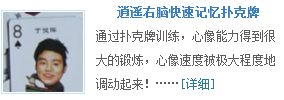1. They ______ on the program for almost one week before I joined them, and now we _____on it as no good results have come out so far.
A. had been working; are still working B. had worked; were still working
C. have been working; have worked D. have worked; are still working
此题的时间参照点是before I joined them,,所以第一个空应该用过去完成进行时,第二个空根据时间now用现在进行时。
2. It would be a good idea to use a plastic bottle, ___cut off, as a container to grow young plants in.
A. of which the top B. the top is C. the top of which D. with its 高中物理 top
此题是独立主格结构,如果题干改为 ____is cut off,答案则为A或C
3. ______ is it _____ has made Peter _____ he is today?
A. What; that; that B. That; that; what C. What; what; that D. What; that; what
用还原法则为 It is what that has made Peter what he is today k可知是强调句式。
4. Before he went abroad,he spent as much time as he _____ English.
A. could learning B. learned C. to learn D. could learn
spend time (in) doing sth 如果改为he did what he ______, 则答案为could to learn.
5. The person we talked about ____ our school last week.
A.visiting B.will visit C.visited D.has visited
此题中包含一个定语从句,the person既作先行词,又作句子的主语,要填入的应该是句子的谓语,根据后面的时间状语为last week,应选过去时。句中包含的定语从句we talked about中about虽为介词,但不影响主句的谓语,故应选C。
观察下面三个句子:
The person we spoke to ____ no answer at first.
A.making B.makes C.make D.made
此题中也包含一个定语从句we spoke to,the person既作先行词,又作句子的主语,要填入的应该是句子的谓语,根据句子的需要,应选过去时。本题中的to为陷阱,实际上它属于定语从句中,而不影响主句的谓语动词。故D正确。
The person we referred to(提及)____ us a report tomorrow.
A.giving B.will give C.gave D.give
同上题一样,句中包含定语从句we referred to,所缺成份为句子的谓语,又根据句中的tomorrow,故用将来时。选B。
The days we have been looking forward to ____ soon.
A.coming B.will come C.came D.have come
同理,此句中的定语从句包含短语look forward to,虽然to 为介词,但并不影响主句的谓语动词,只是一个陷阱而矣。又根据句中的soon,应用将来时,故选B。
6. Not far from the club there was a garden, ____ owner seated in it playing bridge with his children every afternoon. A. whose B. its C. which D. that
答案为B。此题关键是理解seated这个单词,它是过去分词,而不是作谓语的过去式。它不能在句中谓语。所以后面句子不是一个非限制性定语从句,而是一个独立主格结构,故选代词its。
7. You should treat him (in) the way ____ suits him most.
A. that B. in which C. / D. why
此题中先行词the way 后面的定语从句中充当主语。故只能选A。如果先行词the way有从句中充当状语,则可以用that, in which或省略。
8. He is a strict but kind-hearted father, ____ the children respect but are afraid of.
A. / B. that C. for whom D. one whom
此题答案只能为D。替代词one在句中作同位语,代指father,后面再接一个定语从句。先行词one 又在从句中充当宾语。
9. --- You haven’t been to Beijing, have you?
--- _____. And how I wish to go there again!
A. Yes, I have B. Yes, I haven’t C. No, I have D. No, I haven’t
注意题中最后一个单词again(看三遍!)。不要误选为D。答案应为A。全句的句意为“你没有去过北京,是不是?”“不,我去过。我多么想再一次去那里。”
10. Not only ______the jewelry she ____been sold for her son’s gambling debts but also her house.
A. is; has B. has; had C. has; has D. 不填; has
此题中由于Not only 置于句首,故用部分倒装结构。第一个has助动词,是句中谓语动词has been sold中has的提前。第二个has为实义动词,属于定语从句中,表示“有”的意思。本句的意思为:不但是她所有的珠宝而且还有她的房子一起已经被卖掉作为她儿子的赌债了。答案为C。
11. We should do more such exercises in the future,I think,_____ those we did yesterday.
A. as B. like C. about D. than
此题前面有more,根据题意,应该选D。比较:
□We should do such exercises in the future, I think, _____ we did yesterday.
此题应选A 因为we did yesterday是句子,所以用连词as
□The teacher suggested that we should do _____ what he did yesterday.
此题应选B 应为我what we did yesterday是名词性从句,所以用介词like
12. He will tell you _____ he expects will win such a match.
A. why B. whom C. which D. who
此题中的he expects是插入语,所以答案应为D
13. Who would you rather ______ the report instead of you?
A. have write B. have to write C. write D. have written
此题还原为You would rather have who write the report instead of you.可知答案为A
句式为:have sb do sth
14. Who would you rather ______ you repair your CD player?
A. help B. helped C. helping D. to help
此题还原为You would rather who helped you repair your CD player.可知答案为B
句式为:would rather sb did sth 是虚拟语气
15. We’ll be free tomorrow,so I suggest ______ to the history museum.
A. to visit B. visiting C. we should visit D. a visit
suggest的句式为:
suggest sb (should) do sth是虚拟语气
suggest doing sth
suggest sth to sb 所以答案为D
16. I like swimming,while what my brother enjoys ______.
A. cooking B. to cook C. is cooking D. cook
what my brother enjoys是名词性从句做主语,所以答案为C
17. ― How long have you been here? ― ______ the end of last month,
A. In B. By C. At D. Since
since引导的介词短语和现在完成时连用
18. ______ nice,the food was all eaten up soon.
A. Tasting B. Taste C. Tasted D. To taste
taste是系动词, 没有被动,答案A表示原因。对比:
____ nice, the food should be made by adding more sugar. 此题应选D,表示条件。
19. He was sentenced to death ______ what he has stolen from the bank.
A. that B. since C. because D. because of
what he has stolen from the bank是名词性从句,所以应该用介词because of
20.―What do you think of the concert? ―I really enjoy it. I didn’t expect it was ____ wonderful.
A. as B. more C. most D.very
A 这是一个省略句,承接上文,省略了as I had thought。
21. I have no dreams ____ to have a happy life.
A. rather than B. more than C. other than D. less than
other than 的意思是除了而rather than的意思是而不是
22. ―Ms Lin looks rather a kind lady.
―But in fact she is cold and hard on us. You ____believe it!
A. shouldn’t B. wouldn’t C. mustn’t D.needn’t
本题主要考查情态动词的意义和用法。选项A表示建议;选项B表示推测;选项C表示禁止;选项D表示需求。根据句子的意思,本题正确答案为B。
23. I’d try even if I may fail ___ __ sit there worrying in time of trouble.
A. rather than B. other than C. more than D. less than
A 考查than短语。rather than :而不是。
24. He ran as fast as he could _____ to catch the bus.?
A. hope B. to hope C. hoping D. hoped?
此题的最佳答案不是B,而是C,其中的现在分词短语hoping to catch the bus用做伴随状语,即一边跑一边希望能赶上汽车。但是,如果选B,将to hope to catch the bus视为目的状语行不行呢?不行。因为“他拼命地跑”目的是“为了赶上公共汽车”,而不是“为了希望赶上公共汽车”,换句话说,将“希望”作为“目的”不妥。因为同样的原因,下面一题也应选hoping:?
He studied as hard as he could _____ to enter a good college.?
A. hope B. to hope C. hoping D. hoped?
25. He had a lot of friends, none of _____ could lend him any money.
A. whom B. them C. which D. who
此题选A,none of whom could ... 为非限制性定语从句
对比:He had a lot of friends, but none of _____ could lend him any money.
A. whom B. them C. which D. who
此题选B,由于句中有并列连词 but,整个句子为并列句,因此选them
He wrote a lot of novels, none of _____ translated into a foreign language.?
A. them B. which ?C . it D. what??
同学们看了上面一题的分析后,也许会毫不犹豫地认为此题应选 B,理由是none前没有并列连词 and 或 but,但这次又错了。此题的最佳选项应是A,注意此句与上面一句有着本质的不同,即此句的 translated 不是谓语,而是一个非谓语动词(过去分词),所以逗号后面其实不是一个完整的句子,而是一个独立结构。假若在 translated 前加一个助动词 was,则此题应选(which),构成一个非限制性定语从句。所以做这类题要特别小心,千万不要想当然,更不要受思维定势的影响。??
26. I met several people there, two of _____were foreigners. ?
A. whom B. them C. who D. which?
此题选A,two of whom were foreigners 为非限制性定语从句
对比:I met several people there, two of _____ being foreigners. ?
A. whom B. them C. who D. which?
题选B,two of them being foreigners 不是一个完整的句子,因为句子没有谓语,而只有非谓语动词 being
27. She may have missed the train, in _____ case she won't arrive for another hour.?
A. whose B. that? C. which D. what??
此题容易误选 A,因为不少同学认为在定语从句中能用做定语的关系代词的只有 whose。其实除 whose 可用做定语外,which 也可用做定语,只是含义上有差别:在此情况下,whose 的意思相当于one's,而 which 的意思则相当于 that 或 this。比较:?
(1) This is Mary, whose [= and her] father we met last week.?
(2) Call again at 11, by which time [= and by that time] the meeting should be over.?
注:若27题中的逗号前如果有连词 and,则可选 B(that)。
28. According to the rules, students must not _____ their books during examinations.?
A. read B. watch ? C. notice D. look at
此题容易误选A,因为许多同学牢牢地记住了:看书看报用read,看电视用watch,看电影用see,看比赛用watch,看黑板用look at,等等。以上说法并没有错,但问题是,以上句子有其特殊性。一般说来,汉语的“看书”至少有两层意思,一是指阅读性地看书,即看书=读书,此时通常用动词read;另一种看书则不是指阅读性地看书,而只是大概地翻一翻或看一看,比如看看书的封面、定价、内容提要等,或者回答问题时看看书的某些章节或字句以及考试时偷看书本等等,此时通常都不宜用动词read,而应根据情况选用其他动词(如look at)。又如:Let me have a look at the book.让我看看或翻翻这本书。
Please answer my questions without looking at your books.请不看书回答我的问题。
29. _____ with a good education can apply for the job.?
A. Who B. Whoever C. Anyone D. Who ever
此题题选C,介词短语with a good education为修饰anyone的定语
30. _____ seen smoking here will be fined.? A. Who B. Whoever C. Anyone D. Who ever?
题选C,过去分词短语seen smoking here为修饰anyone的定语(可视为anyone who is seen smoking here之省略)
31. ___ smoking here will be fined.?A. Who B. Whoever C. Anyone D. Who ever?
题选C,现在分词短语smoking here为修饰anyone的定语
32. Is there a shop around _____ we can buy some toilet articles??
A. that B. which ? C. where D. what
此题很容易误选B,认为around是介词,选which用以代替前面的名词shop,在此用做介词around的宾语。此分析语法上并不算错,但问题是,照此分析,此句的意思即为:有没有这样一个商店,在它的附近我们可以买到梳妆用品。这样的句意显然不合事理,因为人们通常总是在商店里面买东西,而不是在商店附近买东西。其实此题的最佳选项应是C,其中的around是副词(意为“在附近”),而不是介词,其后where引导的定语从句修饰其前的地点名词shop,句意为:附近有没有我们可以买到梳妆用品的商店?
33. After ____ seemed like hours he came out with a bitter smile.
A. which B. it? C. what D. that
此题应选C,其余三项都很容易误选。误选A,认为介词后应接关系代词which(但是,若填关系代词,其前没有先行词);B或D也不能选择,因为介词后可接what引导的宾语从句,但通常不能跟that引导的宾语从句或没有引导词的从句。另一方面,引导名词性从句的that也不能充当句子成分(句中的seemed缺主语)。选C,what引导的是宾语从句,用做介词after的宾语,其中的what可理解为some time that。
34. The judge paid no attention to _____ he had just lost his wife.?
A. that B. which C. what D. the fact that??
通常情况下,介词后不能直接跟that从句(极个别介词如except, but等除外),遇此情况,应在that从句前加上 the fact(此时the fact用做介词宾语,其后that从句用做the fact的同位语)。
35. They own two cars, not to _____ a motorbike.?
A. speak B. say? C. talk D. mention
但其含义区别甚大:not to mention=更不用说,此外还有:not to say=虽不能说,即使不能说。如:He can speak French and Japanese, not to mention English. ?
他会法语和日语,更不用说英语了。?
David is handsome and smart, not to mention being a good athlete. ?
戴维漂亮精明,而且还是个优秀的运动员。?
It is warm, not to say hot. 天气虽说不上热,但也够暖了。?
He was impolite, not to say rude. 他即使不是粗鲁,至少也是没有礼貌。
36. I think he is _____ to win, but I'm not sure.?
A. possible B. likely? C. impossible D. certain??
从语意上看,D肯定不能选;从英语习惯上看,A和C也不能选;此题最佳答案为B。请再看几例:?
He is likely to arrive a bit late.他可能会晚到一会儿。
It's likely that he will go abroad.他可能会出国。?
注意:虽然possible和likely均可表示“可能”,但两者的搭配是不同的,即可说someone is likely to do sth,但不能说someone is possible to do sth。如:他有可能会同她一道去。
正:He is likely to go with her. ?正:It's likely that he will go with her.
误:He is possible to go with her. 正:It's possible that he will go with her.
另外,还可说:It's possible for him to go with her.
37. It is so difficult a problem that _____ student in this class _____ work it out.?
A. any, can't B. no, can? C. every, can D. no, can't??
此题很容易误选A,因为从句意上看,选A可将此句理解为“这个问题是如此之难,这个班上任何一个学生都不可能做出来”。但按英语习惯,any(任何一个)作为非肯定词,它只能出现在否定词not之后,而不能在其前,即可说not any,但不说any not。所以正确答案应选B。??这工作太难了,恐怕谁也干不了。
正:The work is too difficult. I'm afraid no one can do it.
误:The work is too difficult. I'm afraid any one can't do it.?
什么也阻碍不了我同她结婚。
正:Nothing can prevent me from marrying her.?
误:Anything can't prevent me from marrying her.?
类似地,either (两者中的任意一个)作为非肯定词,它也应出现在否定词之后,而不能出现在否定词之前。如:这两兄弟都不聪明。?
正:Neither of the brothers is clever. / Neither brother is clever.?
误:Either of the brothers is not clever. / Either brother isn't clever.
38. The problem is not _____ easy. Think _____ over.?
A. such, it B. that, it? C. so,不填 D. that,不填
正确答案应为B,that 相当与 so .
39. Little Jim is going to spend his holiday in Paris, _____ lives his uncle.?
A. which B. who? C. where D. that??
许多同学一看到横线后的谓语动词lives,就以为横线处应填who,认为只有who与lives搭配才是合情合理的。但是错了,因为假若选who,那么who 当然就是lives的主语,lives是句子谓语,那么his uncle呢?它是什么成分?是宾语吗?不可能,因为动词live为不及物动词,由此可知,选B是不对的。其实,此题的最佳答案应是C,where lives his uncle为倒装语序,此句可改为and there lives his uncle或and his uncle lives there。
40. Good luck to you, and _____ all your wishes come true!?
A. can B. may? C. must D. should ??
答案选B,may置于句首可表示祝愿,又如:
?May you succeed.祝你成功。?
May God bless you.愿上帝保佑你。?
May you have a very happy married life.祝你的婚姻生活幸福美满。
41. _____ when one loses freedom does one know its value.?
A. Just B. Only ? C. Even D. Ever?
此题最佳答案应选B,主要因为其后主句用了倒装句式(...does one know its value),而综合所给四个选项,只有“only +状语”置于句首才会引出倒装句式。又如:?
Only in this way can you do it well.只有用这种办法你才能把它做好。?
Only by working hard can you succeed.你只有努力才能成功。?
Only yesterday did he return me the money.昨天他才把钱还给我。
Only after the accident did he have his car inspected.只有在那次事故之后,他才叫人检查了他的车子
42. He was in great need of money, so he _____ $5, 000 for his car.?
A. paid B. took C. cost D. spent?
许多同学根据pay ... for ...这一搭配推断出此题应选A。但是错了,当然若单独说He paid $5 000 for the car (他付了5 000美元买这车)也没什么不妥,但问题是,本句前面有这样一句He was in great need of money (他急需要钱),既然是“急需要钱”,又怎么还会花5 000美元去买车呢?尤其还需注意的是car前的物主代词his,这说明是为自己的车花5 000美元,不合情理。此题的正确答案是B,take在此表示“获得”,句意为“他急需要钱,把自己的车以5 000美元给卖掉了”。
43. They weren't a particularly good team, but they refused to give in and _____ defeat.?
A. accept B. accepted? C. accepting D. to have accepted
此题容易误选B,误认为accepted与谓语refused并列。其实,最佳答案为A,动词accept与give并列。?
44. Mother told Jim to watch the milk until it boiled and then _____ off the gas.?
A. turn B. turning C. turned D. having turned
?答案为A,turn off the gas与 watch the milk until it boiled并列。?
45. “Have you seen _____ pen? I left it here this morning.” “Is it _____ black one? I think I saw it somewhere.”? A. a, the B. the, the C. a, a D. the, a?
此题容易误选A,生搬硬套冠词用法规则:第一次提到某人或某事物用不定冠词,第二次再提到该人或该事物时用定冠词。但事实上,此题的第二空Is it black one?中的one并非指前面提到的pen,即这里的one与前面的pen并非同一事物。另外,从后面的I think I saw it somewhere(我想我在哪个地方见过)可知前一句的black one不能是特指的,而应是泛指的,故应用不定冠词。此题正确答案为C。?
现在我们把此题变化一下:
46. “Have you seen___pen? I left it here this morning.” “Is it __black one? I found it in the corner.”
A. a, the B. the, the? C. a, a D. the, a
这样一改,此题的最佳答案就是A,而不是C了
47. My friend Mary is _____ beautiful girl and _____ girl everyone likes to work with.?
A. a, a B. a, the C. the, a D. the, the?
此题很容易误选B,认为第一次提到girl用不定冠词,第二次提到就应该用定冠词。但是,句中第二次提到girl时并不是特指的,此句实为一省略句,补充完整是:My friend Mary is a beautiful girl and she is a girl everyone likes to work with.?比较以下两句(第二个girl前用了定冠词,因为那是特指):?
For this he asked a girl, but the girl refused to answer him.
为此他问了一个女孩,但这个女孩拒绝回答他。?
The other day he met a beautiful girl in the park and the girl smiled at him
48 “Is there _____ here?” “No, Bob and Tim have asked for leave.”?
A. anybody B. everybody ? C. somebody D. nobody??
此题容易误选A,认为这是一般疑问句,要用anybody。其实此题应选B,主要与上下文的语境有关。全文语境为:“大家都到齐了吗?”“没有,Bob和Tim两人请假了。”假若我们将此题作如下变换,则情形就会有所不同:??
49. “Is there _____ here?” “Yes, I'm upstairs. Please come and help me.”?
A. anybody B. everybody C. somebody D. nobody?
50. “I think the teacher is wrong, _____?” “No, I don't think so.”?
A. don't you B. don't I ? C. doesn't he D. doesn't she
此题容易误选C或D,因为按照语法规则,I think后接宾语从句时,其反意疑问句与从句保持一致,但是退一步,即使按此规则,其反意疑问句也应是isn't he或isn't she之类的,而不是像C或D那样用doesn't he和doesn't she。综合四个选项,最佳答案为A,don't you为don't you think so之省略。本文来自:逍遥右脑记忆 http://www.jiyifa.net/gaozhong/77699.html
相关阅读:灵活利用新课标高中英语课文教学
闂備胶绮〃鍛存偋婵犲倴缂氶柛顐ゅ枔閻濆爼鏌eΔ鈧悧濠囷綖閺嶎厽鐓ユ繛鎴炵懅椤e弶绻濋埀顒佸閺夋垶顥濋梺鎼炲劀閸愨晜娈介梺璇叉捣閹虫挸锕㈤柆宥呮瀬閺夊牄鍔庨々鏌ユ煙閻戞ɑ纾荤紒顔芥尵缁辨捇宕橀埡浣轰患闂佽桨闄嶉崐婵嬬嵁鐎n喗鍋い鏍ㄧ椤斿洭姊洪崨濠勬噭闁搞劏鍋愬☉鐢稿焵椤掑嫭鐓熸慨妯煎帶濞呮瑧绱掓潏銊х畼闁归濞€婵$兘鏁傞悾灞稿亾椤曗偓閹嘲鈻庤箛鎾亾婵犳艾纾婚柨婵嗘椤╃兘鏌涘☉鍗炲闁轰讲鏅犻幃璺衡槈閺嵮冾瀱缂傚倸绉靛Λ鍐箠閹捐宸濇い鏃囧Г鐎氳櫕绻涚€涙ḿ鐭嬪ù婊€绮欓崺鈧い鎺嗗亾闁稿﹦鎳撻敃銏ゅ箥椤旀儳宕ュ┑鐐叉濞寸兘鎯屽畝鍕厵缂備焦锚婵啰绱掔捄铏逛粵缂佸矂浜堕崺鍕礃瑜忕粈鈧梺璇插缁嬫帡鏁嬮梺绋款儏缁夊墎鍒掑顑炴椽顢旈崪鍐惞闂備礁鎼悧鍡欑矓鐎涙ɑ鍙忛柣鏂垮悑閺咁剟鎮橀悙璺轰汗闁荤喐绻堥弻鐔煎几椤愩垹濮曞┑鐘亾濞撴埃鍋撴鐐茬Ч閸┾偓妞ゆ帒瀚€氬顭跨捄渚剱缂傚秮鍋撻梻浣瑰缁嬫垶绺介弮鍌滅當濠㈣埖鍔曠粻銉╂煙缁嬪潡顎楁い搴㈡崌閺岋綁鍩¢崗锕€缍婂畷锝堫槻闁崇粯妫冨鎾倷閸忓摜鐭楅梺鑽ゅУ閸斞呭緤婵傜ǹ绠查柕蹇嬪€曡繚闂佺ǹ鏈崙鐟懊洪妶澶嬬厱婵炲棙鍔曢悘鈺傤殽閻愬弶鍠樼€殿喚鏁婚、妤呭磼濠婂啳顔夐梻浣告惈閻楀棝藝閹殿喚鐭撻柛锔诲幐閸嬫挸顫濋浣规嫳婵犲痉銈勫惈闁诡噮鍣i、妯衡攽鐎n偅鐣堕梻浣告惈椤р偓闁瑰嚖鎷�/闂佸搫顦弲婊呮崲閸愵亝鍏滈柤绋跨仛娴溿倖绻濋棃娑掔湅婵炲吋鍔欓弻锝夊Ω閵夈儺浠奸梺鍝ュ仜椤曨參鍩€椤掆偓濠€鍗炩枍閵忋垺顫曟繝闈涚墛鐎氭氨鈧懓瀚妯煎緤濞差亝鈷戞い鎰剁磿缁愭棃鏌涚€n偆澧紒鍌涘浮楠炲棝寮堕幐搴晭 4509422@qq.com 濠电偞鍨堕幐楣冨磻閹惧瓨鍙忛柕鍫濐槹閺咁剟鎮橀悙璺轰汗妞ゅ繗浜槐鎾存媴閸濄儳顔夐梺缁樻惈缁辨洟鍩€椤掆偓濠€閬嶅磿閹寸姵顫曟繝闈涱儏鐎氬銇勯幒鎴濃偓鏄忋亹閺屻儲鍊堕煫鍥ㄦ尰椤ョ娀鏌e┑鍥╂创鐎规洘姘ㄩ幏鐘诲箵閹烘柧鎮i梻鍌氬€哥€氥劑宕愰幋锕€鐒垫い鎺戯攻鐎氾拷





